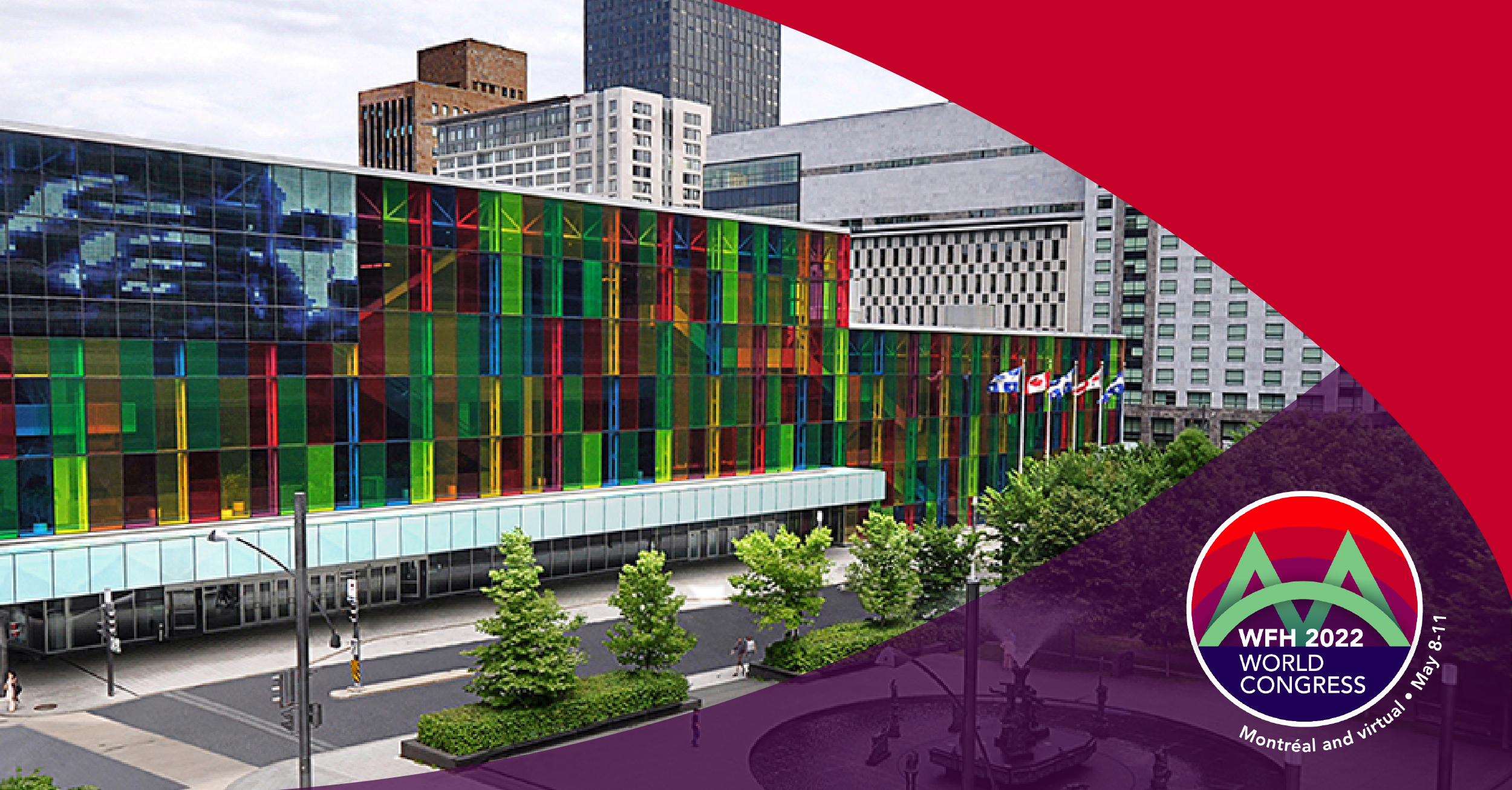To read the full Congress program, please click here.
Coagulation product safety, supply, and access workshop
Sunday, May 8, 9:00 a.m. to 12:00 p.m.
Availability: in-person
This workshop—developed by the WFH Coagulation Product Safety, Supply and Access Committee—will examine the current state of treatment safety, efficacy, and access. Participants will learn more about inhibitor risk and routes of administration; using factor versus emicizumab for treatment; thrombosis in hemophilia; measuring access in the era of extended half-life (EHL) products and emicizumab; and WFH Humanitarian Aid Program efforts in Ukraine.
Multidisciplinary track: Achievement: succession from expectation to reality
Monday, May 9, 11:00 a.m. to 12:00 p.m.
Availability: in-person
This session will acknowledge the role patients play as role models in the community and will showcase what many have achieved despite their bleeding disorders. Speakers include Baiba Ziemele, who is President of the Latvia Hemophilia Society; Mohamed Zulhilmi Ismadi, who has received various prestigious awards throughout his studies; and Chris Bombardier, who became the first person with hemophilia to successfully climb the Seven Summits, including Mount Everest.
Plenary: Gene therapy – are we ready now?
Tuesday, May 10, 10:00 a.m. to 10:30 a.m.
Availability: in-person, virtual, on-demand
Phase 3 research, as well as multiyear follow-up in earlier phase studies, generated concerns regarding efficacy and short- and long-term safety, leading a reconsideration of AAV vector gene therapy. Liver toxicity, albeit typically mild, occurs in at least some patients in all haemophilia A and B trials within the first year and is poorly understood. Long-term safety will necessitate lifelong monitoring. This plenary will examine the pathways that will be crucial to developing mitigations and solutions to the remaining issues, including those who are unable to receive gene therapy at this time.
Medical track: Non-factor therapy
Wednesday, May 11, 11:00 a.m. to 12:00 p.m.
Availability: in-person and virtual
“Non-factor therapy” will cover pharmacokinetic (PK)-based emicizumab dosing; rolling out emicizumab; clinical trials in infants and inhibitor recurrence, and immune tolerance induction (ITI) and anti-drug antibodies. Speakers will include Alfonso Iorio, Co-Chair of the World Bleeding Disorder Registry (WBDR); Johnny Mahlangu, MD; and Gili Kenet.
Musculoskeletal track: Hot topic debates
Wednesday, May 11, 6:30 a.m. to 7:45 a.m.
Availability: Pro+
“Musculoskeletal hot topic debates” will be an important session in this year’s program. This session will include looking at a physical exam versus the functional tools for evaluation; tele-rehabilitation, and the benefits of using ankle arthrodesis or arthroplasty for treatment.
WFH highlight: championing change, improving access globally
Wednesday, May 11, 11:00 a.m. to 12:00 p.m.
Availability: in-person and virtual
This interactive two-panel discussion will showcase the impact the WFH has had on improving access to care and treatment for people with bleeding disorders globally. The discussion will cover where we are today and what strategies, approaches, and partnerships we are pursuing to accelerate access. NMO leaders and WFH global partners will all be part of the panel.
We look forward to welcoming you to the WFH 2022 World Congress, and we are optimistic that we will be able to see you in person in Montreal. To discover all that the Congress has to offer, including opportunities to network and engage with participants, please visit the official Congress website.












